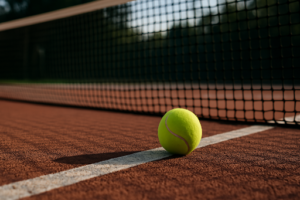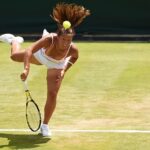Tennis is more than just hitting a ball across the net. It’s a mental challenge. Players need to stay calm, focused, and sharp—especially during high-pressure points. Just like in the Avia Masters plane game, quick decisions and clear thinking matter. One mistake can cost a set or even the entire match. Good tennis requires both physical skill and mental control. Staying present, managing nerves, and reading the opponent are all part of the game. Mental strength is what separates good players from great ones.
The Role of Mental Strength
Top players train their minds. They prepare for long matches, tight points, and tough losses. Mental strength helps them keep going. It helps them block distractions and stay in the moment.
When a player loses focus, errors follow. Their serve drops. Their timing goes off. Confidence fades. Staying calm under pressure is a skill, not just a trait.
What Tennis Teaches About the Mind
Tennis is a lonely sport. You’re on your own. There’s no coach on the court. No teammate to pass to. That means your mindset shapes every moment.
Players must:
- Control their emotions
- Reset after each point
- Stay confident when behind
- Focus only on the next shot
Each match is a test of resilience. It’s about who stays composed longer, not just who hits harder.
Training Mental Focus in Practice
Coaches now include mental training in daily sessions. Players use visualisation, breathing exercises, and focus drills. These tools build calm under stress.
Simple routines include:
- Bouncing the ball a set number of times before serving
- Focusing on the strings of the racket before returning
- Breathing deeply between points
These habits anchor players. They turn pressure into clarity.
The Link Between Tennis and Decision-Making
Good decisions win matches. A player must choose when to go for power or when to hold back. They must read the opponent and adjust.
That requires quick thinking. Just like in fast-paced environments or digital reaction tests, the brain must keep up. In tennis, the best decisions happen in seconds.
Every shot is a choice:
- Down the line or cross-court?
- Lob or drop shot?
- Attack the net or stay back?
These calls depend on training but also on mindset.
How Pressure Changes Performance
Pressure is everywhere in tennis. Match points. Tie-breaks. Set-deciding moments. Even crowd noise can affect the mind.
Under pressure:
- Muscles tighten
- Focus narrows
- Breathing changes
That’s why pros work on staying loose. They learn to control their reactions. They train their minds to treat every point the same.
Recovering from Mistakes
Mistakes are part of tennis. The difference between winners and others is how they respond. One bad point doesn’t have to mean a bad match.
Top players:
- Let go of the last shot
- Refocus immediately
- Trust their preparation
This mental reset is a skill anyone can learn. It’s useful in sport and in life.
Building Confidence Over Time
Confidence isn’t about winning every time. It’s about trusting your process. Tennis teaches that hard work pays off over weeks, not just in one match.
Players build confidence by:
- Sticking to routines
- Tracking progress
- Learning from losses
Wins help, but belief comes from consistency.
Mindset in Training vs. Competition
Practice is one thing. Matches are another. Pressure feels different when points matter. That’s why mental training must be part of both.
Players learn to:
- Treat practice like a match
- Stay focused on effort, not outcome
- Handle nerves before stepping on court
They don’t wait until match day to prepare mentally.
The Benefits Beyond Tennis
Mental focus helps in school, work, and everyday life. Tennis players often develop:
- Better discipline
- Improved problem-solving
- Stronger stress management
These skills translate far beyond the court.
How Young Players Can Start
Mental strength starts young. Junior players benefit from learning simple focus tools early on.
They can try:
- Breathing slowly before each serve
- Saying one keyword to reset after errors
- Keeping a training journal
These habits grow stronger over time.
What Parents and Coaches Can Do
Support from adults makes a big difference. Parents and coaches can:
- Encourage calm reactions
- Focus on effort over wins
- Talk about mindset openly
This builds a healthy view of sport and failure.
Final Thoughts
In tennis, skill matters. But mindset decides outcomes. The ability to think clearly, stay calm, and recover quickly defines the best players.
Mental focus is a tool. Anyone can build it. Whether on the court or in a fast-moving digital world like Avia Masters, strong thinking leads to better choices.
Train the mind like the body. Stay present. Respond, don’t react. That’s the real secret to lasting success.







